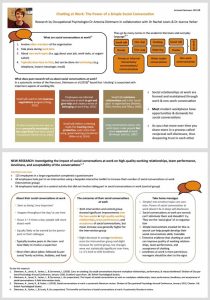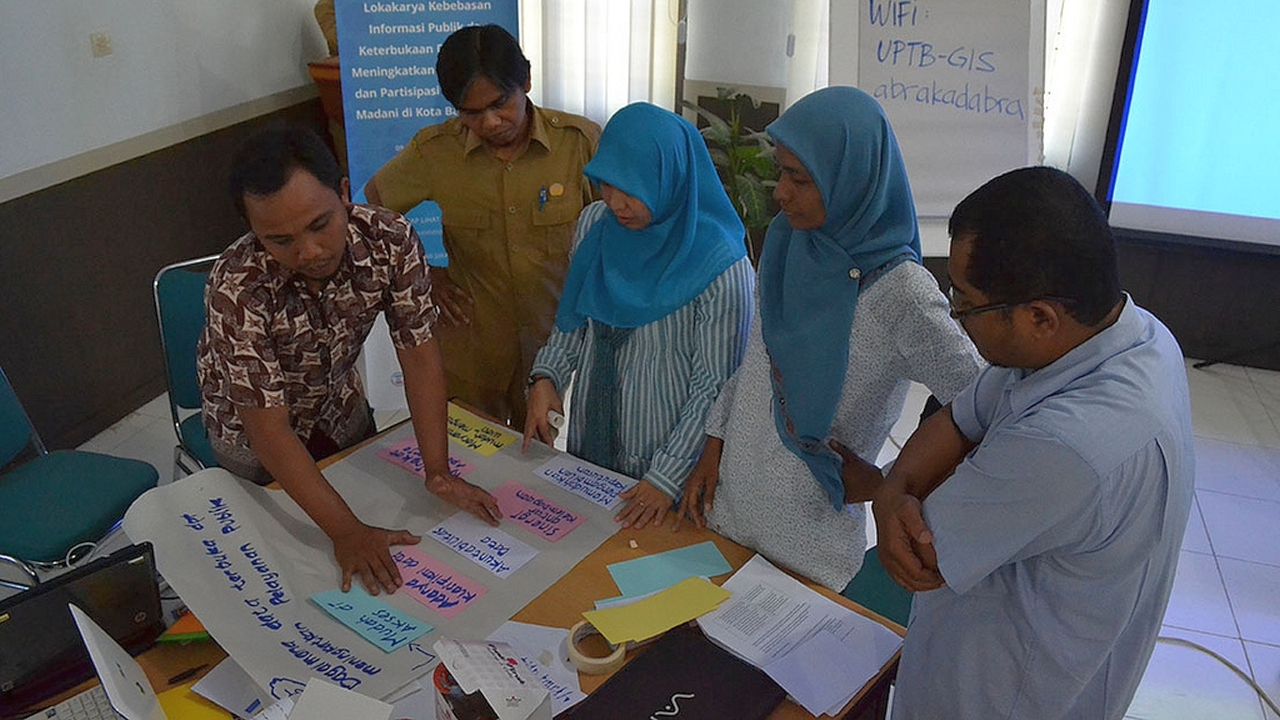
Managers should encourage time for non-work chats
The findings of my recent ‘chatting at work’ research show that managers should encourage time for non-work chats as part of maintaining a productive team with strong working relationships.
The research was carried out in collaboration with Dr Rachel Lewis and Dr Joanna Yarker, and presented1 at the British Psychological Society (BPS) Division of Occupational Psychology Annual Conference earlier this month.
Chatting with colleagues about non-work topics, such as family and hobbies, is a simple way employees can build good working relationships with each other. However, office culture and some attitudes at work about the appropriateness of such ‘chit chat’ can mean they are not encouraged and even actively discouraged in work time.
We wanted to assess how much a designated workplace activity designed to get people chatting would improve relationships, overall job performance and also tackle some of those negative attitudes.
The study
A total of 125 office workers were split into two groups and completed questionnaires relating to their work relationships, team performance, and the acceptability of chatting at work.
The first group was given a conversation toolkit and told to chat with colleagues as much as possible over two weeks. The toolkit included a suggested topic list, ideas for good opportunities for social conversations at work, and resources to give encouragement and set goals.
The second group was asked to complete a network map of relationships at work, but were not given any instructions about chatting at work.
After two weeks both groups completed another questionnaire.
Rather than time wasting, chatting can help improve key outcomes
As summarised in the information sheet below, the results showed that workers in both groups reported significant improvements in the quality of their working relationships, work performance, and acceptance of chatting over the two-week period. However, the changes for the second group were generally smaller.
Participants also believed non-work based chats at work were very important, with these occurring around 2-5 times a day – often for a very short time. Conversations don’t need to be long to make a difference.
Clearly, simple activities at work that help us chat more and focus on our relationships with colleagues can improve key outcomes at work. We all need the help and support of other people at work. These social chats can help smooth issues and be the basis of future collaboration.
Some organisations will be concerned about time wasting. Our study, and earlier research, shows that people don’t spend their whole chatting – in fact these social conversations are short and only happen 2 – 5 times a day. Employees mainly talk about the job and tasks that need to be done.
However, just being exposed to more social conversations at work makes people accept them more and see their value. Managers should embrace and encourage social conversations at work, including role-modelling the importance of getting to know colleagues.

Header image source: Cottonbro on Pexels.
Reference:
- Dietmann, A., Lewis, R., Yarker, J., & Zernerova, L. (2020). Carry on chatting: Do social conversations improve workplace relationships, performance, & reduce loneliness? Division of Occupational Psychology Annual Conference, January 2020, Stratford-upon-Avon. UK: British Psychological Society. ↩






